What music education methods naturally develop social and emotional skills?
Yamaha Music School has been leading music education in Japan for over 60 years. It is said that their teaching methods do not simply improve playing skills, but also enhance social and emotional skills such as sensitivity, creativity, compassion, concentration, and patience. To learn more about these teaching methods, we talked to Yuriko Kitabayashi, director of the Yamaha Music Research Laboratory, Yamaha Music Foundation.
Table of Contents
- 1. Nurturing people who can truly enjoy music
- 2. Developing listening skills in early childhood
- 3. The educational goal: Children who play with music
- 4. Not only reproduction of the music through the playing of the masterpieces
- 5. What is the secret behind Yamaha Music School’s development of social and emotional skills?
Nurturing people who can truly enjoy music
Social and emotional skills have become a hot topic, seen now as a necessity for children living in an era of constant change and rapidly progressing artificial intelligence. Generally, they refer to abilities that cannot be quantified, such as self-restraint, communication skills, independence, and aspirations, and form the foundations for children to learn, grow, and live.
Education that develops social and emotional skills is being sought continuously. The teaching methods of the Yamaha Music School, which have continued for more than 60 years, are attracting plenty of attention due to their great potential in developing social and emotional skills effectively.
Genichi Kawakami, the president of Nippon Gakki Co., Ltd., the predecessor of Yamaha Corporation, was deeply impressed when he visited Europe and the United States for approximately three months and saw people enjoying music so intimately. That visit is said to have led to the birth of the precursor of the current Yamaha Music School in 1954.
"Yamaha Music School started with the concept of nurturing people who can enjoy music freely. This has not changed. ‘To foster the musical sensitivity that everyone is born with, to develop the ability to enjoy creating and playing the music of their own and ultimately share the joy of music with anyone’ remains as the educational goal.
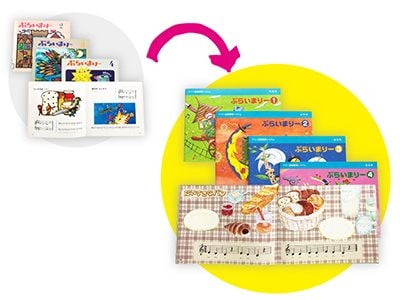
Primary textbook, used for many years in Yamaha Music School classes
Top left: First edition of Primary, published in 1972
Bottom right: Primary edition in use today
In the past, the teaching method in individual piano classes mainly emphasized theory and performance. Many children were frustrated by the high hurdles of reading and playing esoteric sheet music. In fact, this remains a common teaching method in private piano classes today.
“Yamaha Music School developed a new music teaching method based on its founder’s beliefs, which stated that if children could be exposed to music through various elements, not just theory and performance, they would continue learning while enjoying music. This new method is the process of 1) Listening to the music, 2) Singing what you heard, 3) Playing what you sang, and 4) Reading and confirming in the score what you played.”
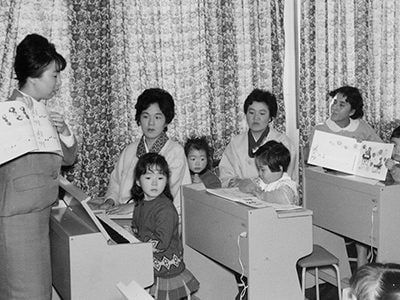
Yamaha Music School circa 1961
Developing listening skills in early childhood
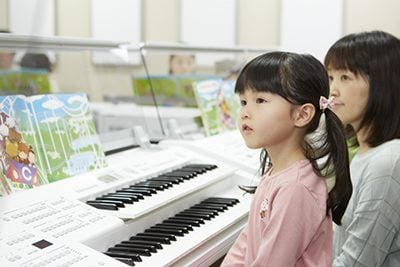
Timely education: Yamaha Music School emphasizes learning that is appropriate to the physical and psychological development of each student Musical listening abilities develop significantly in early childhood, and therefore Yamaha Music School emphasizes listening in their classes for young children. When 4 and 5-year-olds experience a broad range of music, they often develop “a good hearing ability for music as a part of musical sense.” This means they have a strong ability to listen to various elements that make up music, including notes, time signature, rhythm, dynamics, and key.
By developing musical sense especially a good hearing ability in those age period while having fun, children build both motivation and interest to express themselves through music. It seems that this is the most natural way to absorb music.
"In early childhood, we learn everything we need for life by imitating adults. This is also the time when our ability to memorize words increases exponentially. By taking advantage of this instinctive ability to imitate, children can learn musical elements just as they do with language."
The educational goal: Children who play with music
Check out this inspiring video.
Masterpieces is the best to describe how these children uniquely arrange the tune of the school chime. These creations embody the philosophy of the Yamaha Music School.
"It is wonderful to be able to assert one’s performance of original song and/or arrangement without hesitation, and to have the power to express what one likes in front of everyone."
Comprehensive music education, one the features of Yamaha Music School, makes this possible. Using keyboard instruments as educational tools, students learn music through an all-embracing approach involving listening, singing, playing, and reading.
In many private music classes, the emphasis is on playing the piano only. At Yamaha Music School, however, children's rich sensibilities, creativity, and expressiveness can be achieved through a comprehensive balance of music education. This fosters basis of social and emotional skills.
Not only reproduction of the music through the playing of the masterpieces
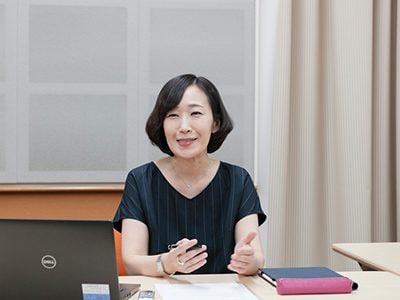
“Playing Mozart or Chopin is reproduction based on the interpretive by each performer. Obviously, improving one’s ability to reproduce past works is important, and expressing these works in one’s own way requires creativity. However, the creativity cultivated at Yamaha Music School is slightly different.”
Playing, for example, a melody heard on TV, over the internet, or somewhere in the city without a score, and adding to the tune one’s own touches, requires great originality.
“People can do that because they have honed their listening skills in early childhood. Those skills are the fundamentals what lead to the ability to create original music. The focus on creativity and expressiveness is what sets Yamaha Music School apart from other music classrooms.”
What is the secret behind Yamaha Music School’s development of social and emotional skills?
Why is Yamaha Music School said to be able to develop social and emotional skills?
"Social and emotional skills can be divided roughly into two categories. This first category relates to one’s relationship with oneself—self-affirmation, self-control, independence, autonomy, the power to control and recognize oneself. The second category relates to the nature of the mind in terms of sociability—cooperativeness, empathy, compassion, and so forth."
Yamaha Music School uses teaching methods that develop each person's individuality and creativity, but group lessons are also one of its unique features. Students have opportunities to synchronize and perform ensembles with friends, and to listen to friends' performances. This is not only fun, but also provides inspiration through the performance of others, motivating students to work harder and improve themselves.
Cognitive abilities and social and emotional skills can interfere with each other
“To become good at something, one needs to practice, that is, plan and set goals. With music, we can see very clearly and immediately if someone can or cannot play. Therefore, it is also necessary to improve cognitive ability. It is slightly mysterious, but I feel that social and emotional skills grow intertwined with cognitive abilities. It is a state where skills give birth to other skills. I think Yamaha Music School has been practicing this somewhat naturally for over 60 years. Young children particularly can develop cognitive abilities and social and emotional skills in a natural, reasonable way.
Among the millions of people who joined Yamaha Music School throughout its long history, many say that the music lessons in Yamaha Music School helped them learn cooperativeness and the importance of continuity. What pleases Ms. Kitabayashi the most, however, is when students say they enjoyed their lesson or that they have begun to like music.
"There are so many ways to enjoy music, whether it's singing in a choir, singing karaoke, playing in a band or brass band, or going to a concert by your favorite artist. Whatever the method, I hope that children in the future continue to have a rich life where music is always close and in their hearts."
Yuriko Kitabayashi
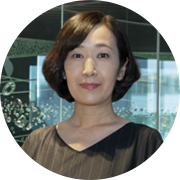
Director
Yamaha Music Research Institute, Yamaha Music Foundation
Graduated from the Faculty of Education (Music), completed her master’s degree at the Graduate School of Humanities and Sciences at Ochanomizu University. As a Yamaha Music Foundation mentor, was involved in teaching material production, teaching method research, recruitment of Yamaha Music School instructors, instructor self-development support, and new business development. Became director of the Yamaha Music Research Institute in 2019.
Text: Mikako Wakiya / Photos: Daisuke Uchida




